Asia-Europe Dialogue
-
Laszlo Zsolnai gave a lecture in the “Happiness Talk Series” of Rekhi Centre for The Science of Happiness at the Indian Institute of Technology, Kharagpur on October 30, 2021. He introduced the Western (Aristotelian) and the Eastern (Buddhist) conceptions of happiness and discussed the contemporary approaches to wellbeing. He argued that the purpose of the firm should be redefined. Instead of maximizing profit, firms should maximize the wellbeing of all the stakeholders. He presented cases of successful working models of wellbeing oriented organizations.
-
Under the leadership of Laszlo Zsolnai the Economy & Religion Program has been established at the Corvinus Institute for Advanced Studies, Corvinus University of Budapest in February 2021. The Economy & Religion Program aims to explore and study the multiple roles that religion/spirituality plays in the functioning of the economy. It focuses on the contemporary issues of capitalism in relation to ethics and morality, ecology and sustainability, and social inequality and cultural diversity. It fosters the spirit of open dialogue that seeks collaboration across disciplines, cultures, and faith traditions.

-
From January 15 - February 5, 2021 Paul Shrivastava (Penn State University), Eleanor O'Higgins (University College Dublin), Peter Pruzan (Coepnhagen Business School) and Laszlo Zsolnai teach a webinar series on Ethics, Sustainability and Spirituality at the S.P. Jain Institute of Management and Research in Bombay, India.
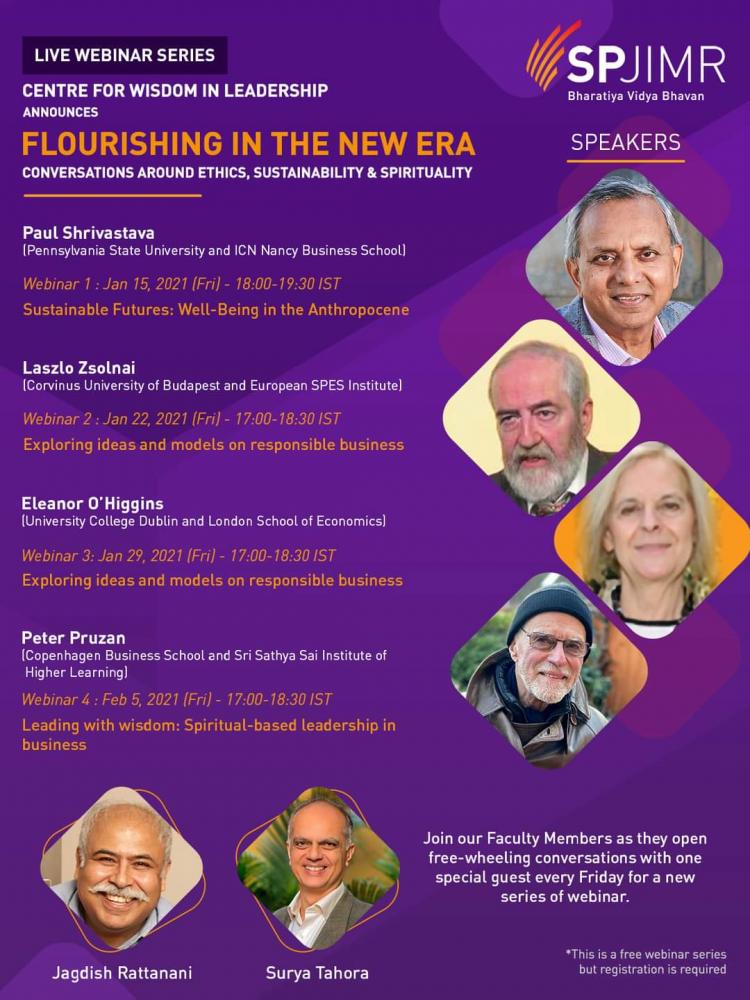
-
The paper covers Peter Pruzan’s personal and professional journey described as “From Optimization to Transformation – My Path to the Wellspring of Rationality, Morality and Spirituality”. This journey also took Professor Pruzan from USA to Denmark and India.
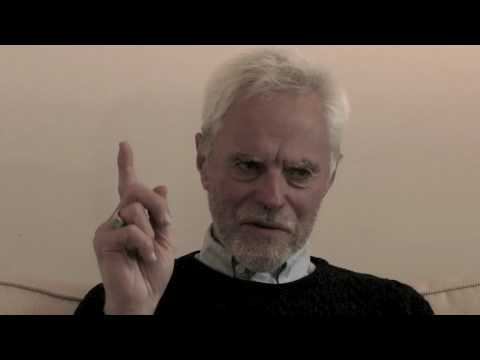
-
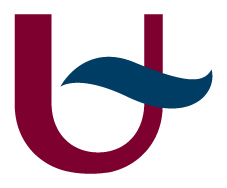 The Center for Ethics of the University of Antwerp and the European SPES Institute organized a workshop at the Antwerp Management School on December 17, 2016 in Antwerp, Belgium. Program of the workshop included the presentation of the book “Ethical Leadership: Indian and European Spiritual Approaches” (Palgrave-Macmillan, 2016). It was followed with a brainstorming session about the coopeartion of the European SPES Institute and the Flemish SPES Forum, including developing a joint SPESLab. The workshop ended by a presentation of Professor Kim Yong-Bock, Chancellor of the Asia Pacific Center for Integral Study of Life about their activities and projects in South Korea.
The Center for Ethics of the University of Antwerp and the European SPES Institute organized a workshop at the Antwerp Management School on December 17, 2016 in Antwerp, Belgium. Program of the workshop included the presentation of the book “Ethical Leadership: Indian and European Spiritual Approaches” (Palgrave-Macmillan, 2016). It was followed with a brainstorming session about the coopeartion of the European SPES Institute and the Flemish SPES Forum, including developing a joint SPESLab. The workshop ended by a presentation of Professor Kim Yong-Bock, Chancellor of the Asia Pacific Center for Integral Study of Life about their activities and projects in South Korea. -
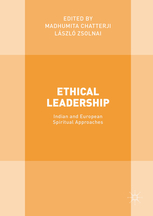 The book contains selected papers presented at the international conference coorganized by the European SPES Institute and IFIM Business School in Bangalore, India on January 9-10, 2014. Addressing issues of human values, ethics, spirituality and leadership in business the authors of this volume create a dialogue and interchange between Indian and European cultural traditions. Topics include spiritual orientations to business in Hindu, Buddhist and Christian traditions; the effect of spirituality upon contemporary leadership theories; sustainable business models in India and Europe and a comparison between Indian and European philosophies of leadership.
The book contains selected papers presented at the international conference coorganized by the European SPES Institute and IFIM Business School in Bangalore, India on January 9-10, 2014. Addressing issues of human values, ethics, spirituality and leadership in business the authors of this volume create a dialogue and interchange between Indian and European cultural traditions. Topics include spiritual orientations to business in Hindu, Buddhist and Christian traditions; the effect of spirituality upon contemporary leadership theories; sustainable business models in India and Europe and a comparison between Indian and European philosophies of leadership. -
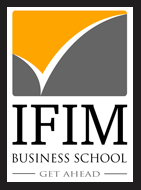 The European SPES Forum co-organized an international conference entitled “Ethical Leadership: The Indian Way” hosted by IFIM Business School in Bangalore, India on January 9-10, 2014. Organizing partners included the V.B. Padode Centre for Sustainability of IFIM Business School. The conference got together educationists, professionals from different areas in the industry to address issues of human values, ethics and spirituality in doing business in the Indian context.
The European SPES Forum co-organized an international conference entitled “Ethical Leadership: The Indian Way” hosted by IFIM Business School in Bangalore, India on January 9-10, 2014. Organizing partners included the V.B. Padode Centre for Sustainability of IFIM Business School. The conference got together educationists, professionals from different areas in the industry to address issues of human values, ethics and spirituality in doing business in the Indian context. -
The Buddhist Economics Research Platform, the Loden Foundation, Bhutan and the Hungarian Bhutan Friendship Society in partnership with the European SPES Forum and the European Buddhist Union organized an international workshop 'Buddhist Values in Business and its Potential for Europe' on 24-25 November 2012, in Brussels, Belgium. Partly inspired by Bhutan's Gross National Happiness, the workshop was designed for people from the business or academic sectors interested or involved in Buddhist Business/Economics as well as for entrepreneurs, university students and leaders of Buddhist organizations.

-
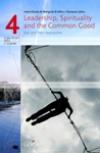 The authors of the book believe that the European and Asian traditions of spirituality provide rich resources for world seeking to rediscover the Common Good. The particular focus of this Cahier is on the need for responsible leaders who understand and accept their responsibility to steward the resources in their care for the good of their organisation and for the Common Good. Such leaders will have developed the capacity to integrate the economic, the social and the environmental realms and inspire trust in their organisational communities through the quality of their character and spirit.
The authors of the book believe that the European and Asian traditions of spirituality provide rich resources for world seeking to rediscover the Common Good. The particular focus of this Cahier is on the need for responsible leaders who understand and accept their responsibility to steward the resources in their care for the good of their organisation and for the Common Good. Such leaders will have developed the capacity to integrate the economic, the social and the environmental realms and inspire trust in their organisational communities through the quality of their character and spirit. -
The Chine-Europe International Business School (CEIBS) together with the European SPES Froum organized an international workshop on Leadership, Spirituality and the Common Good: East and West Approaches in October 15-16, 2008 in Shanghai, China. Designed for academics and practitioners, the conference explored the relationship between spiritual sources and the common good as defined by Eastern and Western societies.
